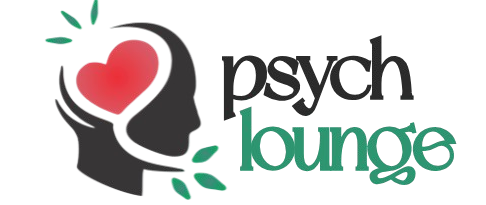
Internship for Students of Psychology for Clinical Practice
March 19, 2025 - March 19, 2030

The “Internship for Students of Psychology for Clinical Practice” offered by Psych Lounge is designed to provide a comprehensive learning experience. Below is a detailed breakdown of the course contents for this program:
- Orientation and Introduction to Clinical Practice
- Overview of the clinical psychology field and its scope.
- Introduction to the internship structure, goals, and expectations.
- Ethical guidelines and professional standards in clinical practice (e.g., APA ethics code).
- Confidentiality, informed consent, and client rights.
- Foundational Clinical Skills
- Patient Intake and Assessment
- Conducting initial interviews and intake sessions.
- Learning to gather relevant client history and background information.
- Mental Status Examination (MSE)
- Understanding and practicing MSE to assess cognitive, emotional, and behavioral functioning.
- Documentation and Record-Keeping
- Writing clinical notes, progress reports, and treatment plans.
- Psychological Assessment and Testing
- Introduction to psychometric tools and their applications.
- Training in administering, scoring, and interpreting psychological tests:
- Personality assessments (e.g., MMPI, Rorschach).
- Cognitive and intelligence tests (e.g., WAIS, WISC).
- Symptom-specific assessments (e.g., Beck Depression Inventory, GAD-7)
- Writing psychological evaluation reports.
- Therapeutic Techniques and Interventions
- Introduction to Major Therapeutic Approaches
- Cognitive Behavioral Therapy (CBT)
- Psychodynamic Therapy
- Humanistic and Person-Centered Therapy
- Solution-Focused Brief Therapy (SFBT)
- Skill Development in Therapy
- Building rapport and therapeutic alliance
- Active listening and empathy
- Crisis intervention and de-escalation techniques
- Group Therapy
- Observing and co-facilitating group therapy sessions
- Understanding group dynamics and processes
- Case Conceptualization and Treatment Planning
- Learning to formulate cases based on clinical data
- Developing individualized treatment plans
- Setting therapeutic goals and measuring progress
- Understanding evidence-based practices for various mental health conditions (e.g., depression, anxiety, PTSD)
- Specialized Workshops and Training
- Trauma-Informed Care
- Understanding the impact of trauma and how to work with trauma survivors
- Crisis Intervention
- Techniques for managing suicidal ideation, self-harm, and acute psychological distress
- Cultural Competence
- Working with diverse populations and understanding cultural factors in therapy
- Child and Adolescent Psychology
- Basics of working with children and adolescents in a clinical setting
- Supervised Clinical Practice
- Shadowing Licensed Clinicians
- Observing therapy sessions and clinical assessments
- Conducting Sessions Under Supervision
- Leading individual and group therapy sessions with feedback from supervisors
- Case Management:
- Coordinating care with other professionals (e.g., psychiatrists, social workers)
- Case Studies and Group Discussions
- Reviewing real-life case studies to understand diagnostic and treatment processes
- Participating in case conferences and team meetings.
- Discussing ethical dilemmas and challenging clinical scenarios
- Research and Evidence-Based Practice
- Introduction to clinical research methods
- Assisting in ongoing research projects (if applicable)
- Learning to critically evaluate research literature and apply findings to practice
- Professional Development
- Self-Care and Burnout Prevention
- Strategies for managing stress and maintaining work-life balance
- Career Guidance
- Exploring career paths in clinical psychology
- Resume building and interview preparation
- Networking Opportunities
- Connecting with professionals in the field
- Feedback and Evaluation
- Regular one-on-one feedback sessions with supervisors
- Mid-term and final evaluations to assess progress
- Certification of completion based on performance
Key features of the program
- Hands-On Experience: Direct involvement in clinical activities under supervision
- Personalized Mentorship: Guidance from experienced clinicians
- Skill-Based Learning: Focus on developing practical, job-ready skills
- Ethical Training: Emphasis on ethical decision-making and professional conduct
- Flexibility: Opportunities to explore areas of interest within clinical psychology
Outcome
By the end of the program, students will:
- Be proficient in basic clinical skills such as assessment, diagnosis, and treatment planning
- Have a deeper understanding of therapeutic techniques and their applications
- Be prepared to handle real-world clinical scenarios with confidence.
- Gain a competitive edge in pursuing further education or careers in clinical psychology
This program is ideal for students looking to build a strong foundation in clinical practice while gaining valuable experience in a supportive and professional environment.

